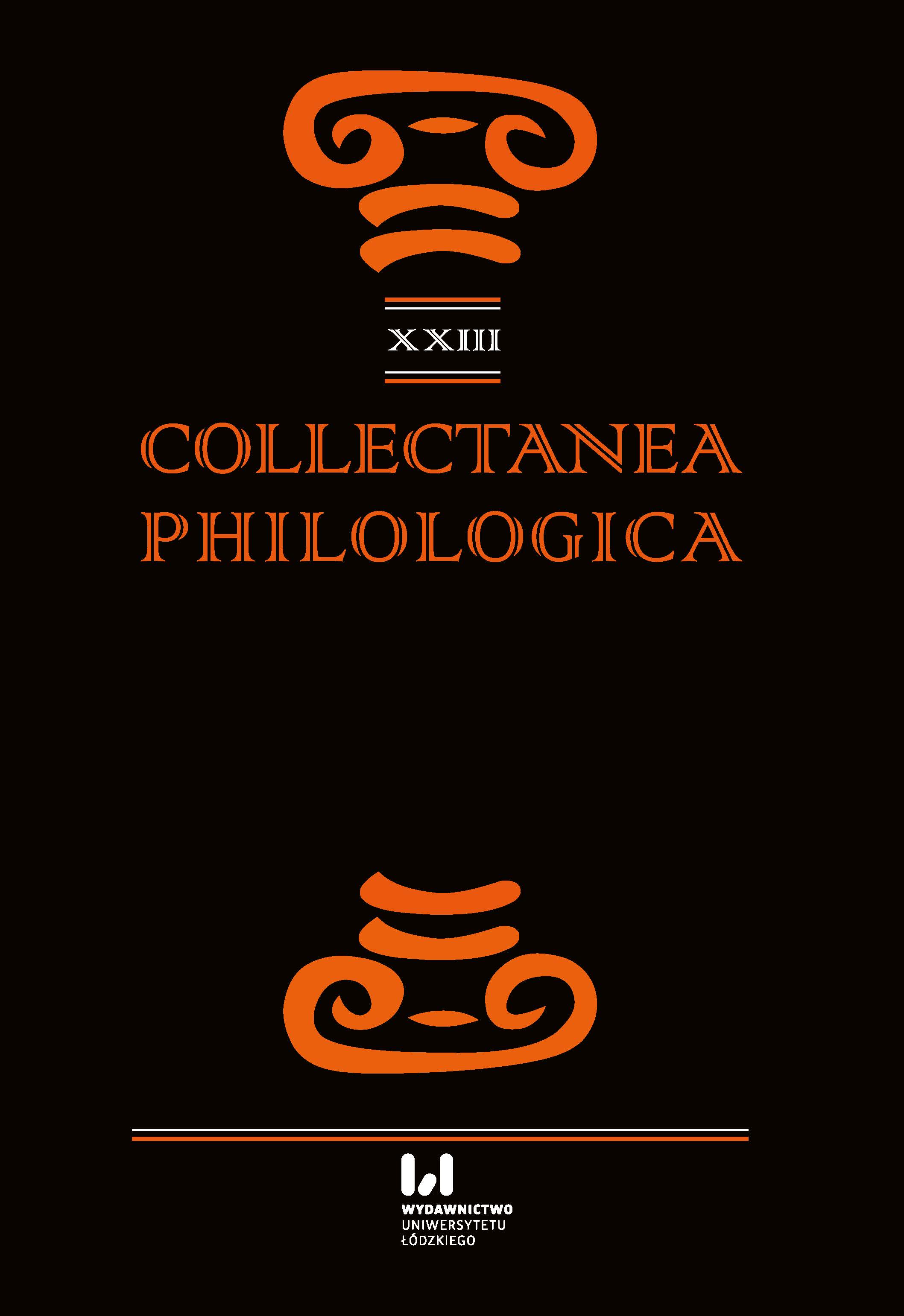AOIΔIMOI AΘANAI. Pochwała Aten w poezji Pindara
AOIΔIMOI AΘANAI. The Praise of Athens in Pindar’s Poetry
Author(s): Magdalena StuligroszSubject(s): Poetry, Studies of Literature
Published by: Wydawnictwo Uniwersytetu Łódzkiego
Keywords: Pindar; polis-encomium; Athens; epinicians; dithyrambs
Summary/Abstract: The prescriptions on how to eulogize the city, provided in 3rd century by Menander Rhetor in his treatise On Epideictic, reflect the encomiastic convention according to which Pindar composed his poetic encomia urbis. Among the topoi that the poet applies to praise Athens one can list the ancient origin of the city, including the identification of its founder, the practiced habits concerning the form of politeia as well as those concerning the professional skills and abilities of the inhabitants, their virtues and deeds in war and in peace. In Pindar’s victory odes, the praise of the city is always subordinated to the praise of an individual victor. Therefore, the poet praises the outstanding individuals, members of aristocratic families, whose values and achievements adorn their city, and who inherited their excellence from heroic ancestors, mythical founders of Athens. In dithyrambic poems, composed for Athenian festivals and performed by kyklioi choroi of men and boys representing the communities of phylai, polis-encomium is a form of self-praise, an expression of 5th century Athenian ideology, which makes citizens proud of their city’s power. Consequently, Pindar focuses on praising Athens’ military prowess and the dominant position which the city achieved in the Greek world, its institutions, its beauty and public buildings.
Journal: Collectanea Philologica
- Issue Year: XXIII/2020
- Issue No: 1
- Page Range: 9-22
- Page Count: 14
- Language: Polish

